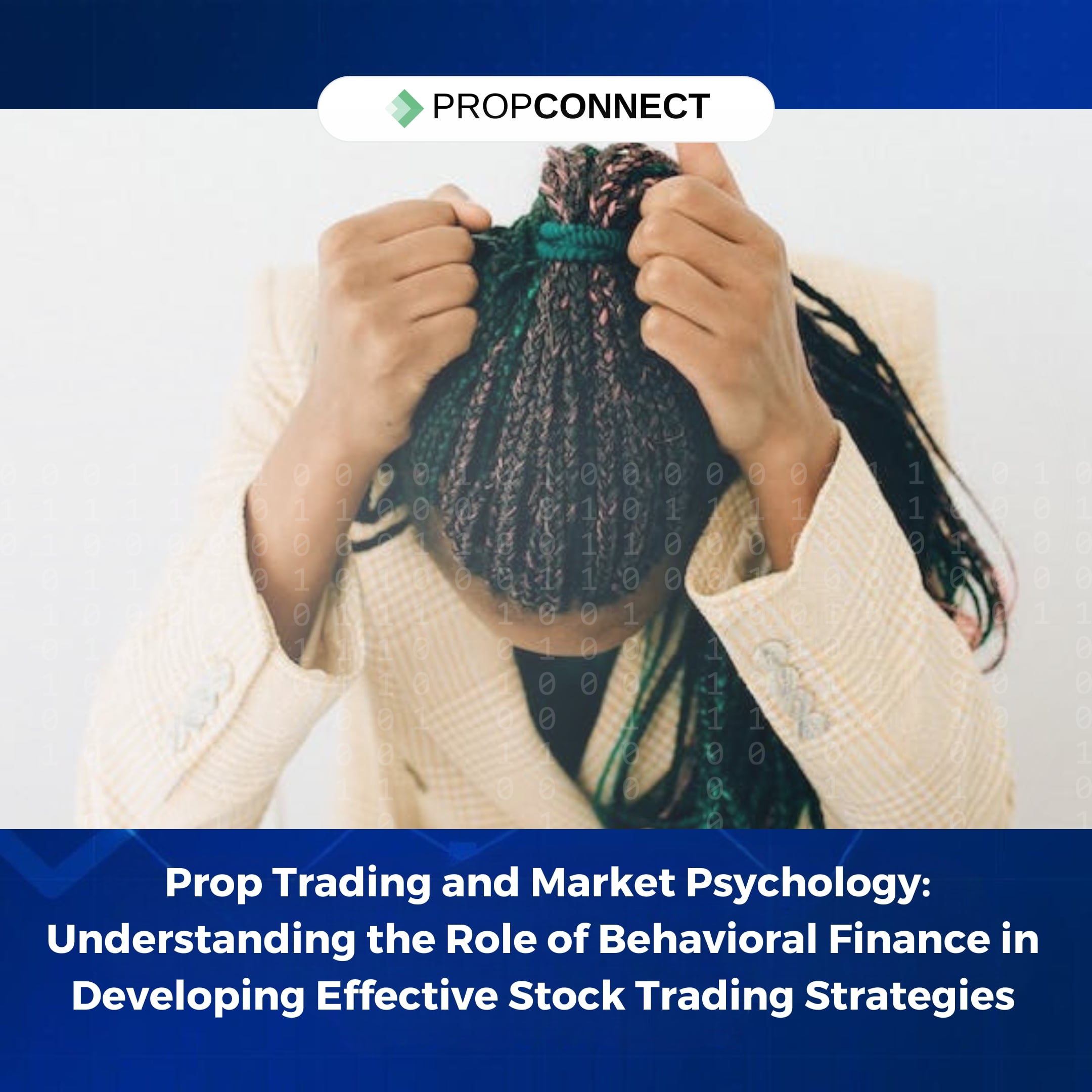Articles
Prop Trading and Market Psychology: Understanding the Role of Behavioral Finance in Developing Effective Stock Trading Strategies
Market sentiment indicators like the Fear and Greed Index provide useful information about current market emotions for instance high levels of fear may indicate that there are buying opportunities while excessive greed may signal that there is an overbought market and so a reversal.

Prop Trading and Market Psychology: Understanding the Role of Behavioral Finance in Developing Effective Stock Trading Strategies
In trading stocks, which is a very dynamic area, it is crucial to have deep knowledge about trading, prop trading and the psychology of the market. The article explores the symbiotic relationship between prop trading and market psychology, where behavioral finance provides the framework for developing stock trading strategies.
Behavioral finance considers market psychology which focuses on the effect of human emotions and cognitive biases on financial decisions. The psychological effects that drive market behavior have recently become a concern to traders and investors, prompting the growing recognition of behavioral finance.
Behavioral finance is one of the main insights that states human beings are not always rational actors. However, we become vulnerable to various cognitive biases that can make us decide irrationally. For example, we might be overconfident about our skills thereby taking on too much risk that will eventually lead to huge losses. Just like the trader who goes with the flow, one may also miss out on the chances of earning from the market imbalances.
The psychology of how markets behave dictates for prop trading firms to come up with effective trading strategies. This entails having a clear knowledge of the emotional biases that traders and investors face as well as the cognitive biases that affect the emotional side of decision-making.
Market Psychology: Unveiling the Human Element in Trading
Although trading strategies and prop trading give a basis, market psychology integrates the human element into stock market dynamics. Market psychology is crucial in understanding how psychological factors influence financial decision-making in the context of behavioral finance.
Stock prices are largely based on emotions such as fear, greed, and over-confidence. Irrational market behavior is often brought about by behavioral biases such as herd mentality and anchoring. Behavioral finance provides traders with insights to enable them to predict market shifts and position themselves accordingly.
Market sentiment indicators like the Fear and Greed Index provide useful information about current market emotions. In this respect, high levels of fear may indicate that there are buying opportunities while excessive greed may signal that there is an overbought market and so a reversal.
Integration for Success: Harmonizing Strategies with Psychology
Stock trading is based on a synergy of effective trading strategies and deep knowledge of market psychology, which is the basis of enduring success. This is quite noticeable in the field of prop trading where innovative strategies go hand in hand with a sophisticated perception of the market based on human behavior.
However, one of the ways to create efficient trading strategies is to implement quantitative models incorporating both market and psychological elements. For instance, a model could use sentiment analysis to understand the mood of the market, or it may include measures of volatility that take into account the impact of fear and uncertainty as it relates to trading decisions.
Another way to deal with cognitive biases and emotional reactions is to employ behavioral coaching. Behavioral coaching involves working with traders to identify their biases and develop management strategies. Such approaches can include mindfulness meditation which has proven effective for traders to concentrate and avoid impromptu trades.
In a nutshell, the convergence of trading strategies, prop trading, and stock market psychology is important for stock trading. These traders take a holistic view of things, and they are well-positioned to succeed in a market whose dynamics are constantly in flux and which is driven by strategy as well as psychology.

